Fidel Castro, Cuba’s towering revolutionary leader turned dictator, died on Saturday at the age of 90. Though he had largely retired from public life 10 years earlier due to health issues, news of Castro’s death reverberated around the world, prompting an outpouring of remembrances and arguments over the complicated and violent legacy he leaves behind.Few, however, can speak directly from inside the revolutionary moments that have informed the last 50-plus years of Cuban history. Fewer still can describe Castro’s personality behind closed doors and what the infamous leader was like in the early days of the revolution.Natalia Bolivar is one of those people. In a rare interview with VICE News, the 83-year-old shared photos and memories from her time in the revolution and looked back on the life of Castro — the man and the revolutionary.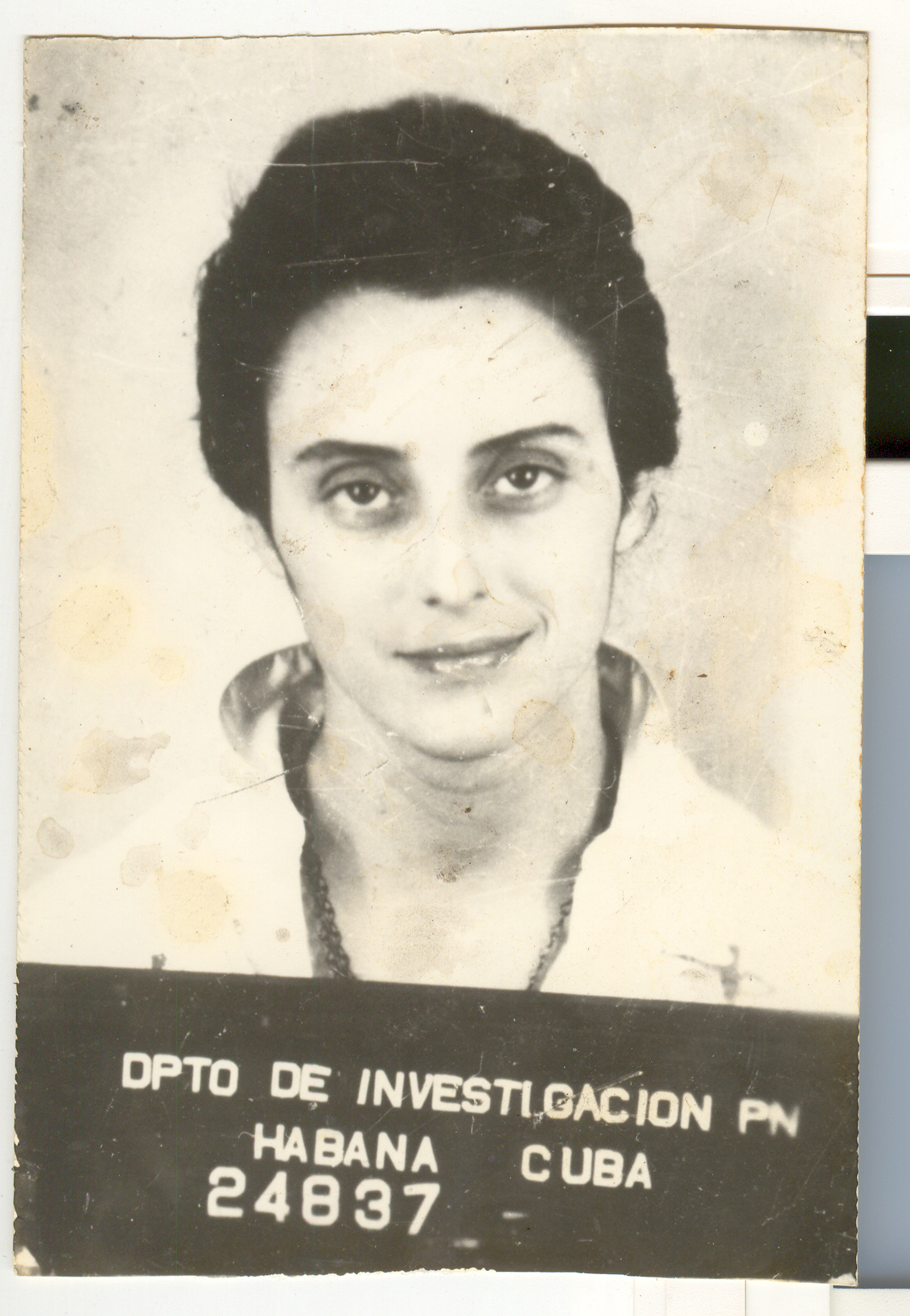 Though she is known today as one of Cuba’s most renowned anthropologists, as a young woman Bolivar was one of the leading female figures in the Cuban Revolution.“I took part in the most sensitive things because they thought that since I come from a well-off family, I was never going to be imprisoned,” Bolivar said. “They couldn’t [have been] more wrong.”Born into an aristocratic family, Bolivar, who referred to herself as the “black sheep of her family,” spent years running underground resistance against the brutal Batista regime. Arrested and tortured by Batista’s men, Bolivar fought alongside Castro and Che Guevara in the early years, and remained an ardent supporter of the revolution through her work in the arts and academia after Castro took power and declared the country a Communist state.“I was one woman between many men that were killed during the process of the revolution,” Bolivar said.
Though she is known today as one of Cuba’s most renowned anthropologists, as a young woman Bolivar was one of the leading female figures in the Cuban Revolution.“I took part in the most sensitive things because they thought that since I come from a well-off family, I was never going to be imprisoned,” Bolivar said. “They couldn’t [have been] more wrong.”Born into an aristocratic family, Bolivar, who referred to herself as the “black sheep of her family,” spent years running underground resistance against the brutal Batista regime. Arrested and tortured by Batista’s men, Bolivar fought alongside Castro and Che Guevara in the early years, and remained an ardent supporter of the revolution through her work in the arts and academia after Castro took power and declared the country a Communist state.“I was one woman between many men that were killed during the process of the revolution,” Bolivar said.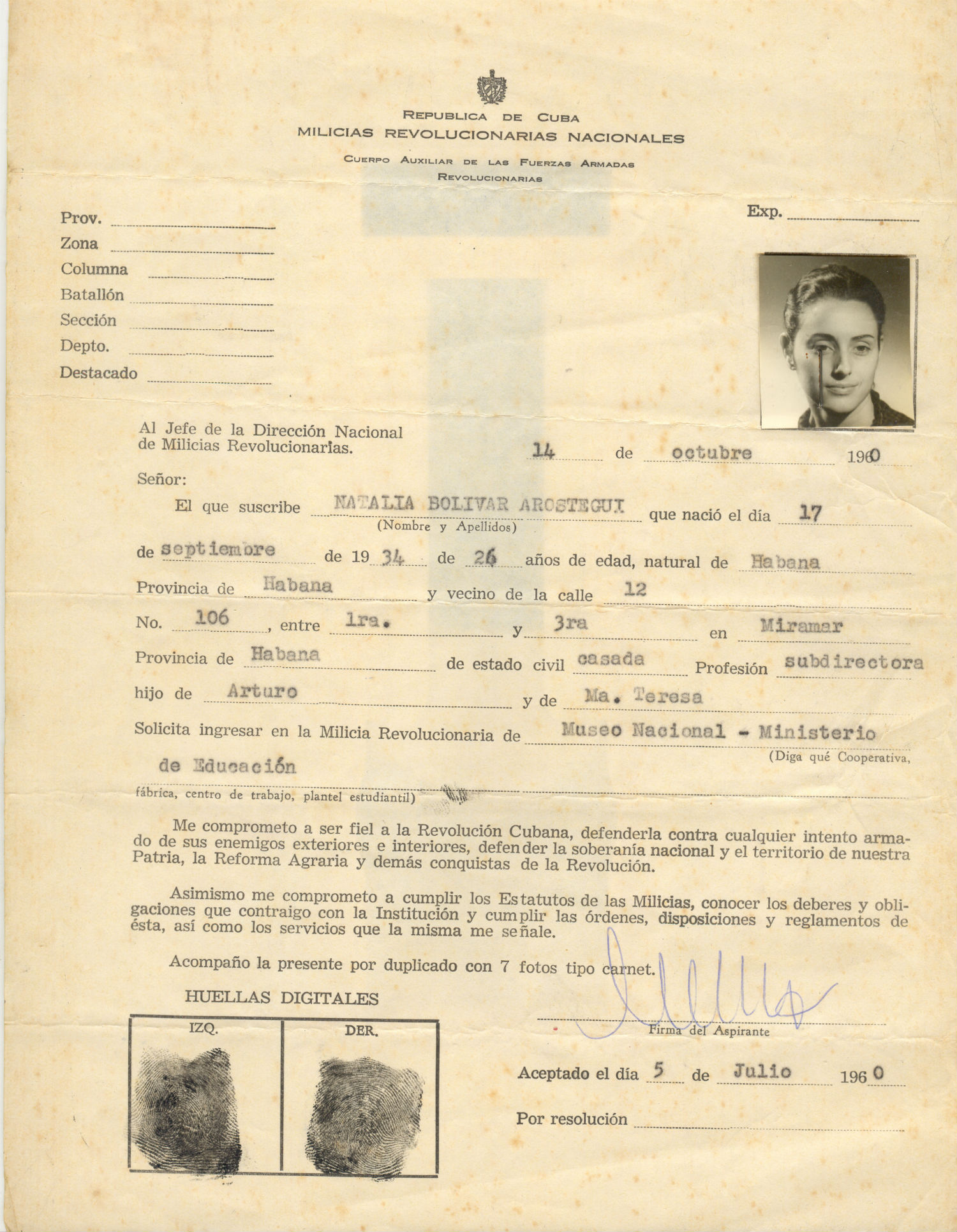 “I lived a double life the whole time. It’s really interesting because you have a secret world.” Bolivar recalled. “But I always had to come up something with my parents. Where are you? I went to the movies. What did you watch? A movie. What was the movie about? Two guys who fight. I couldn’t even remember. I had not even watched the movie. I was moving weapons around.”
“I lived a double life the whole time. It’s really interesting because you have a secret world.” Bolivar recalled. “But I always had to come up something with my parents. Where are you? I went to the movies. What did you watch? A movie. What was the movie about? Two guys who fight. I couldn’t even remember. I had not even watched the movie. I was moving weapons around.”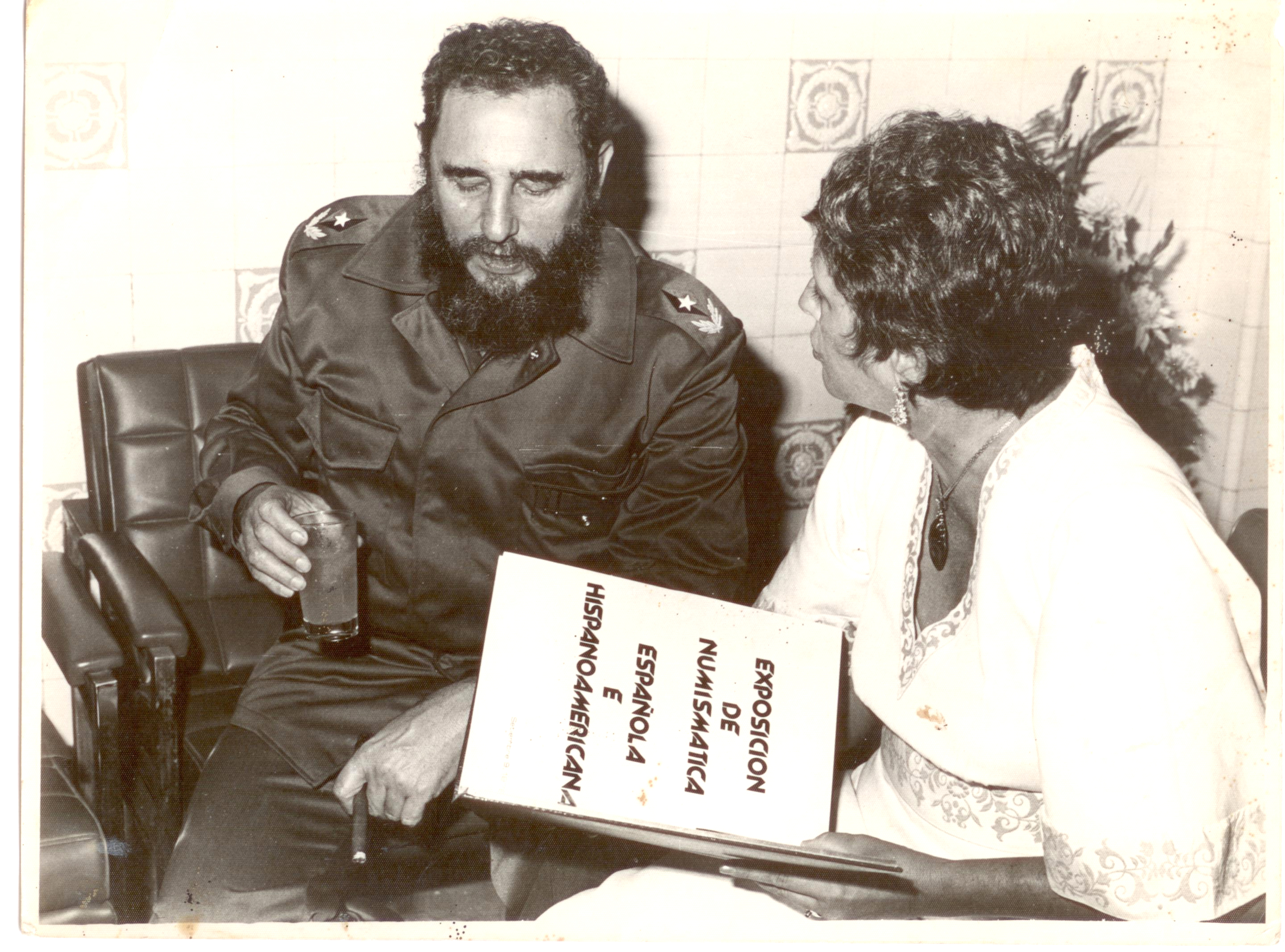 “[Castro and I] would spend so much time arguing when we got together.”
“[Castro and I] would spend so much time arguing when we got together.”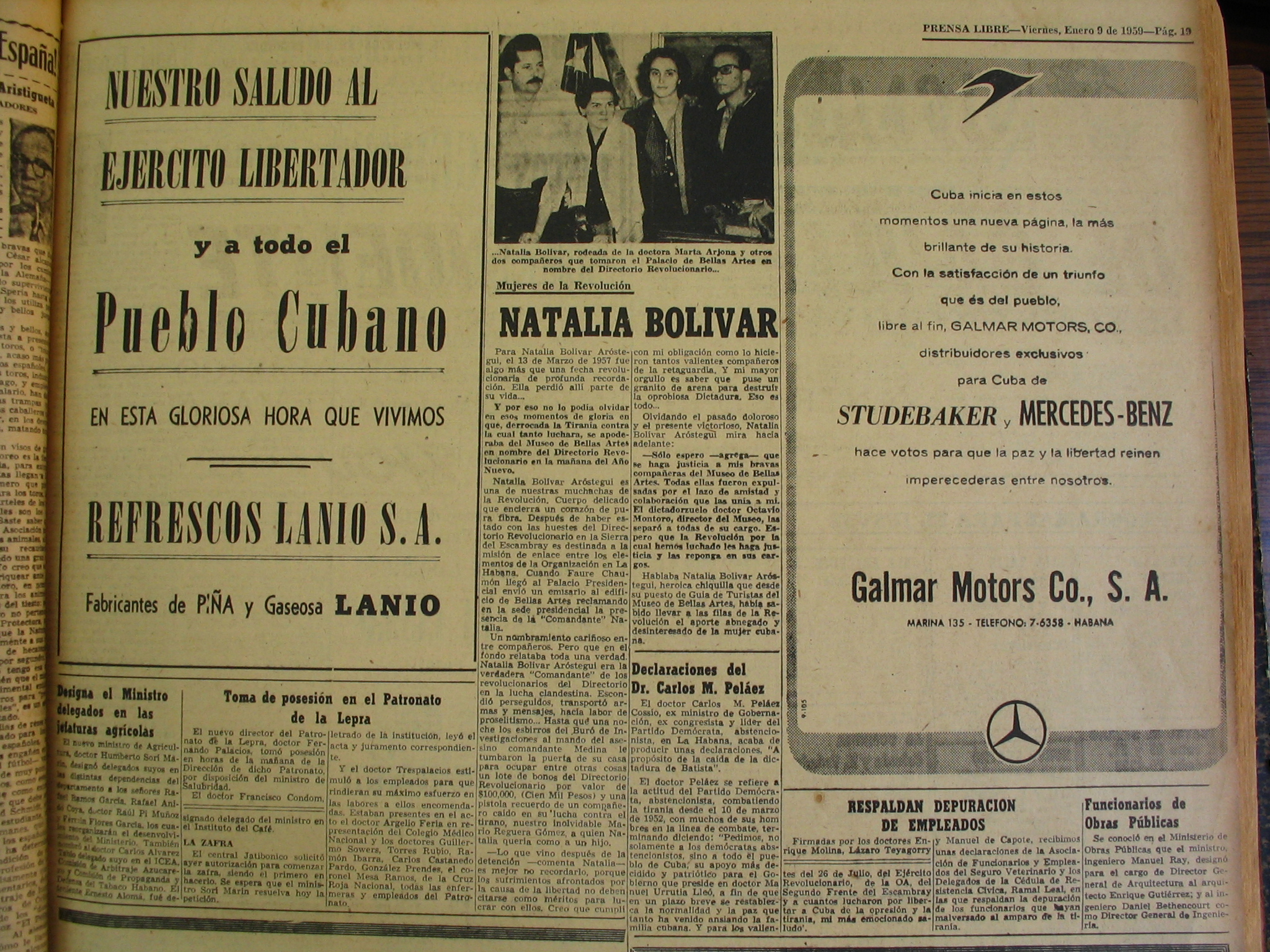 “The group was very young and we were united. We were like a family. I have beautiful [memories] of what we lived in that time, even though I was tortured and everything. I didn’t care because it was such a beautiful life with all of them.”
“The group was very young and we were united. We were like a family. I have beautiful [memories] of what we lived in that time, even though I was tortured and everything. I didn’t care because it was such a beautiful life with all of them.”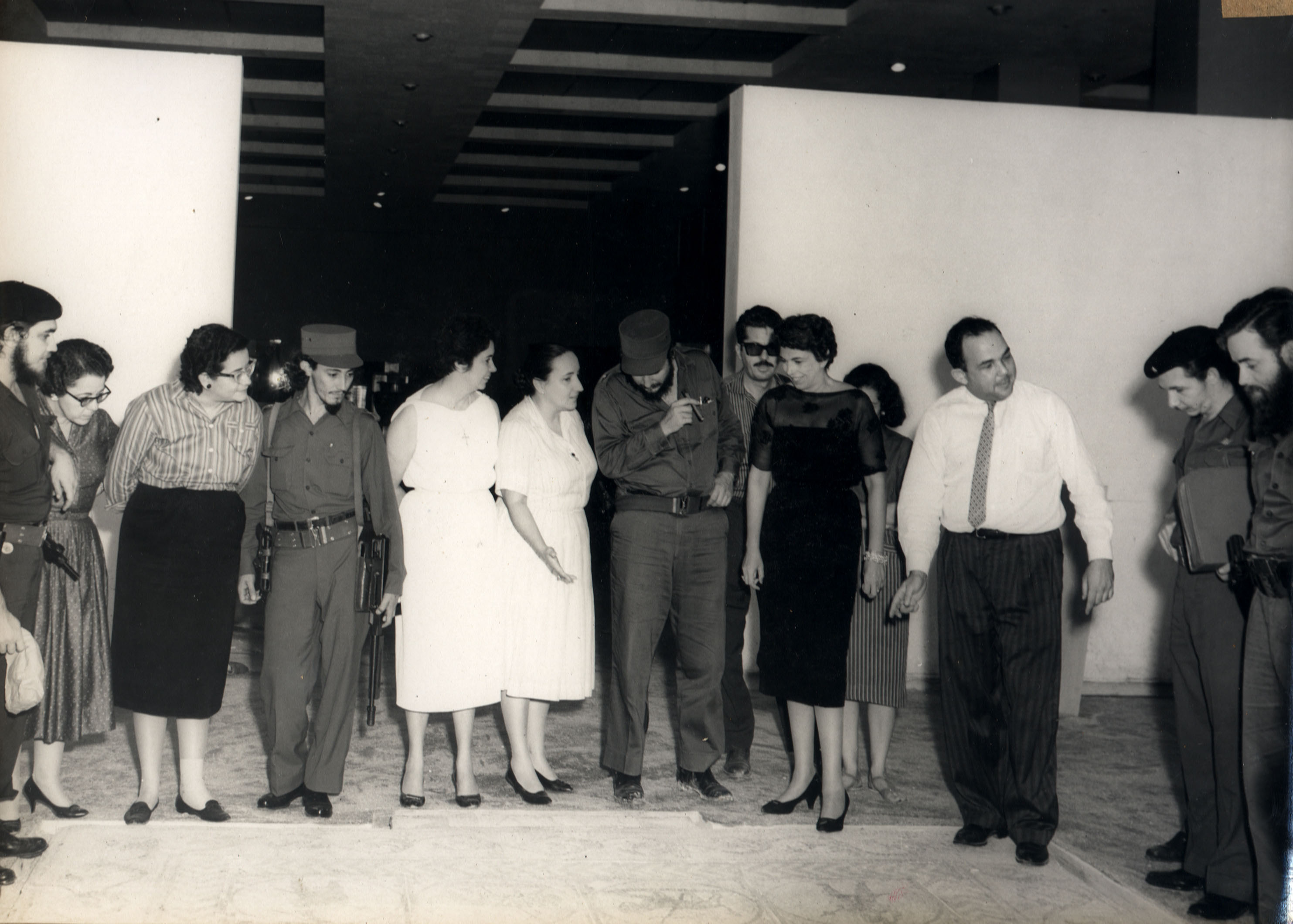 “The worst moment of my life was when I saw my friend be killed in the attack of the presidential palace. He was a very good friend… and of course my family didn’t know anything of that. And my worst [memory] before the revolution was when they took me to prison and tortured me.”
“The worst moment of my life was when I saw my friend be killed in the attack of the presidential palace. He was a very good friend… and of course my family didn’t know anything of that. And my worst [memory] before the revolution was when they took me to prison and tortured me.”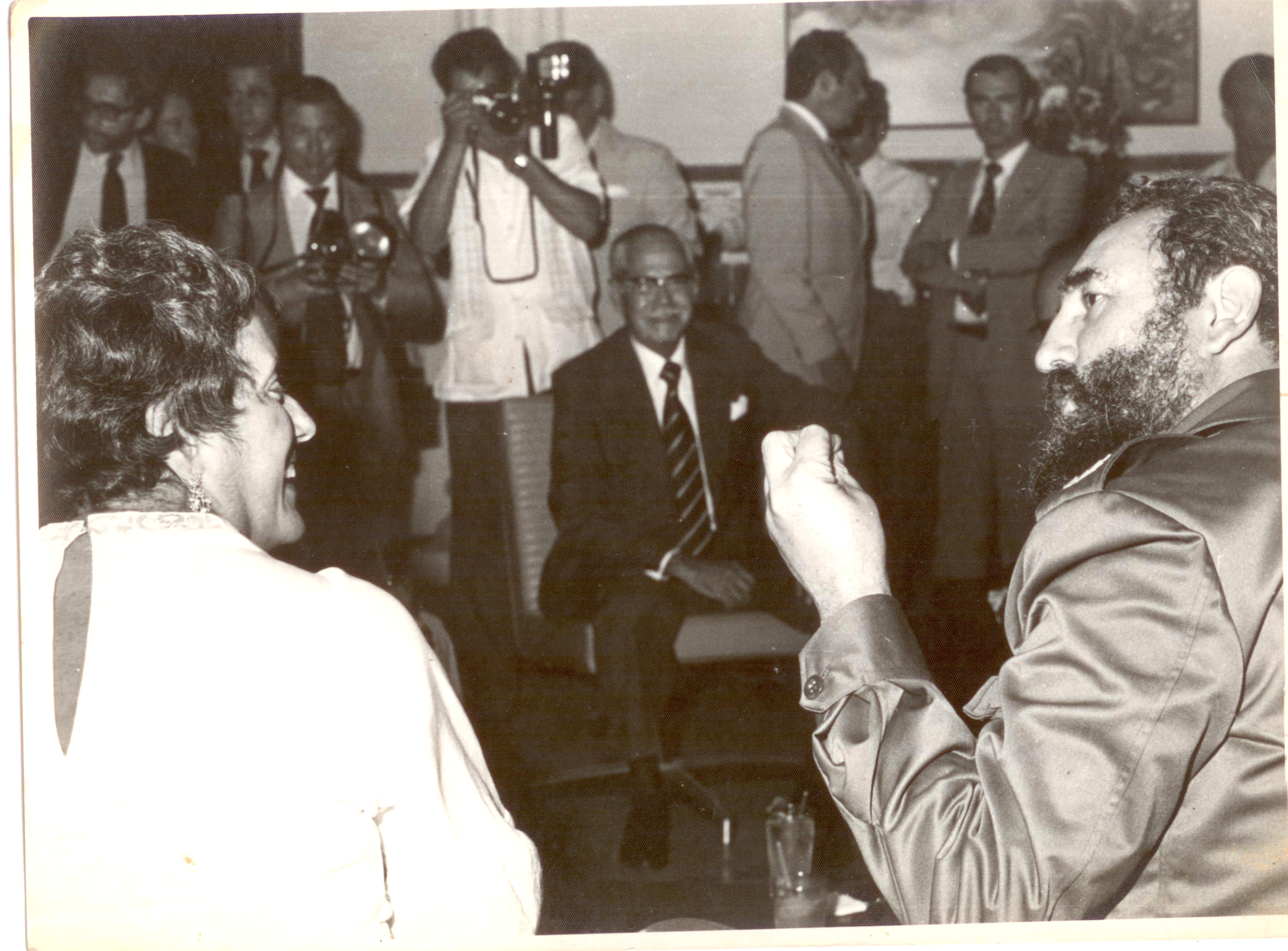 “I think there’s not [an] adjective made in Spanish, English, or French that can determine who Fidel was. Or who Fidel is, because he is history. He is our Cuban history. And now the world’s history…. There are no words that can mean exactly what he was to the world.”
“I think there’s not [an] adjective made in Spanish, English, or French that can determine who Fidel was. Or who Fidel is, because he is history. He is our Cuban history. And now the world’s history…. There are no words that can mean exactly what he was to the world.”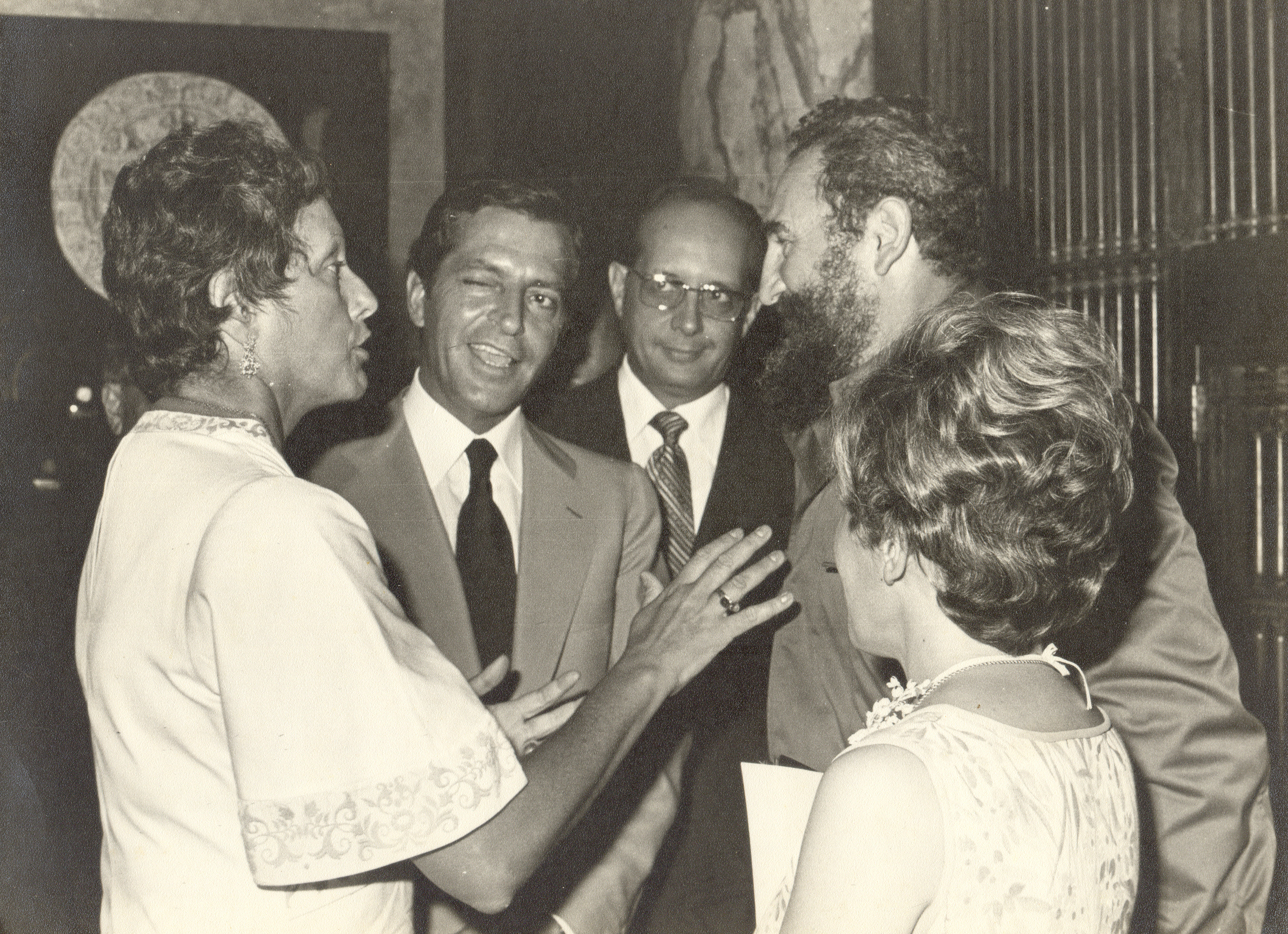 “He was an extraordinarily interesting man. He had a very special personality,” said Bolivar. “Here we are in ample harmony because he was fascinated by the exhibition and by running into me because we hadn’t seen each other in a while.”
“He was an extraordinarily interesting man. He had a very special personality,” said Bolivar. “Here we are in ample harmony because he was fascinated by the exhibition and by running into me because we hadn’t seen each other in a while.”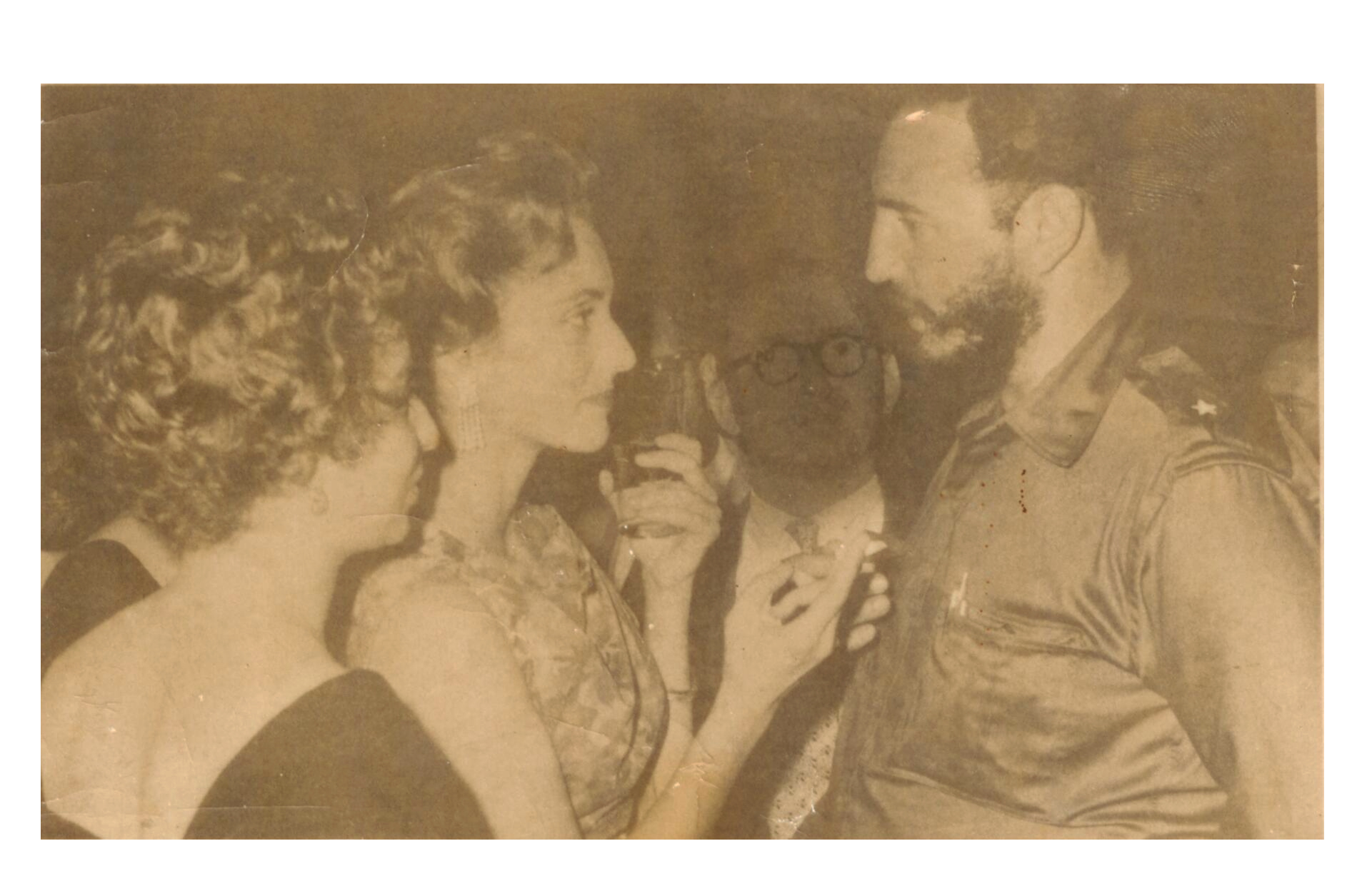 “The only thing I can say is that us, the old folks, are dying. So the lessons we can leave behind are the lessons of one’s life, and we’ll see how things work out.” Bolivar said. “I don’t know how this is going to be maintained…. What’s going to happen? I don’t know, I don’t have, what do you call it, a crystal ball, to tell you. I don’t know.”*All images were published with permission from Natalia Bolivar. Interview conducted by Alfredo Delara.
“The only thing I can say is that us, the old folks, are dying. So the lessons we can leave behind are the lessons of one’s life, and we’ll see how things work out.” Bolivar said. “I don’t know how this is going to be maintained…. What’s going to happen? I don’t know, I don’t have, what do you call it, a crystal ball, to tell you. I don’t know.”*All images were published with permission from Natalia Bolivar. Interview conducted by Alfredo Delara.
Advertisement


Advertisement





